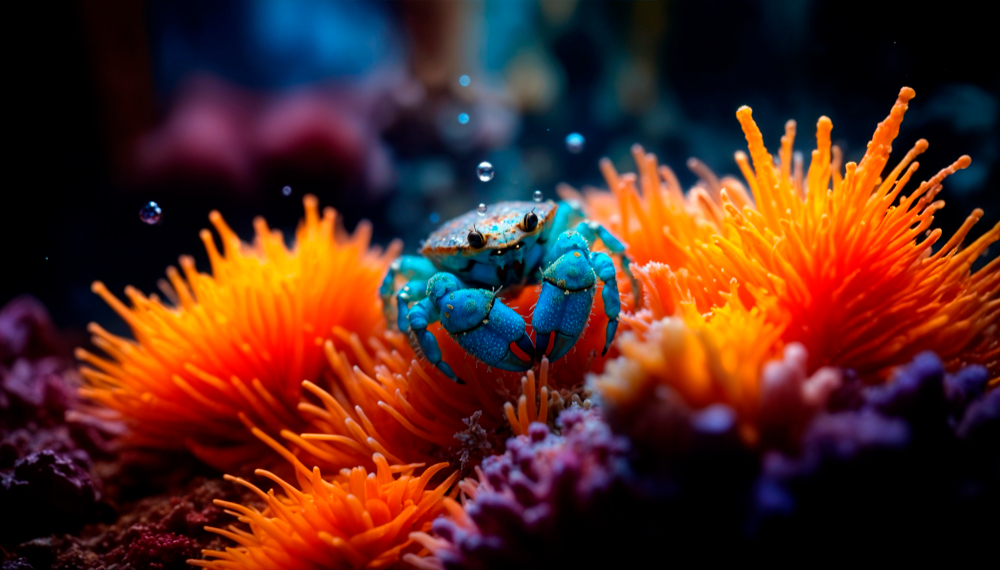
What to Look for in a Marine Biology Course
🌊 Dive Into Your Future: The Best Places to Study Marine Biology
If you’re fascinated by oceans, coral reefs, sea creatures, or climate change, Marine Biology might be your perfect subject. Whether you dream of studying dolphins, restoring coral reefs, or researching ocean conservation, choosing the right university is key.
But Marine Biology isn’t just about labs and textbooks - it’s about location, hands-on experience, and being close to the sea. Here’s a breakdown of the best places in the world to study Marine Biology, and what makes them so special.
What to Look for in a Marine Biology Course
Before we get into locations, here’s what makes a great Marine Biology program:
-
Access to the ocean (fieldwork is essential!)
-
Research labs and marine stations
-
Opportunities to work with real scientists or organisations
-
Courses in ecology, oceanography, genetics, and conservation
-
Field trips, diving, or practical modules
Now let’s check out the top places to study...
United Kingdom
Top Universities:
-
University of Southampton – Home to the National Oceanography Centre, one of the world’s leading research hubs.
-
University of Plymouth – Amazing coastal location, strong practical focus, and links with the Marine Biological Association.
-
University of St Andrews – Strong in marine mammal science and research.
-
Bangor University (Wales) – Right on the coast, with great fieldwork access to the Menai Strait.
-
University of Exeter (Penryn Campus) – Close ties with conservation groups like the Cornwall Wildlife Trust.
Why It’s Great:
-
Leading research in climate change, fisheries, and marine ecosystems
-
Coastal campuses = practical learning
-
Often part of environmental science or ocean science degrees
United States
Top Universities:
-
University of California, Santa Barbara (UCSB) – Incredible marine research facilities and access to Pacific coast ecosystems.
-
University of Miami (Rosenstiel School) – Specialised marine programs with coral reef and shark research.
-
Duke University (Marine Lab) – Offers immersive field-based learning.
-
University of Washington – Strong oceanography and marine conservation programs.
-
Scripps Institution of Oceanography (UC San Diego) – World-renowned for marine science and oceanographic research.
Why It’s Great:
-
Access to cutting-edge marine tech
-
Diverse marine environments: from Pacific kelp forests to Florida’s coral reefs
-
Opportunities for undergraduate research and internships with top scientists
Australia
Top Universities:
-
James Cook University (Queensland) – Located near the Great Barrier Reef; famous for tropical marine science.
University of Queensland – Strong research links, field stations, and reef studies. -
University of Sydney – Offers Marine Science with strong coastal fieldwork.
-
Macquarie University – Known for its environmental and marine biology programs.
Why It’s Great:
-
Study next to the largest reef system in the world
-
Top focus on coral reef restoration, tropical ecosystems, and marine conservation
-
Outdoor learning and regular field trips
New Zealand
Top Universities:
-
University of Otago – Set on the coast, offers hands-on research opportunities and incredible biodiversity.
-
University of Auckland – Offers marine science through its Leigh Marine Laboratory.
Why It’s Great:
-
Access to pristine and unique marine ecosystems
-
Strong focus on conservation and sustainable management
-
Fantastic for students who want a balance of field science and academic research
Honourable Mentions Around the World
-
University of British Columbia (Canada) – Marine biology and oceanography with access to the Pacific Northwest.
-
University of Cape Town (South Africa) – Study marine ecosystems where two oceans meet.
-
Nord University (Norway) – Arctic marine biology and fisheries studies in the far north.
Final Thoughts: Choosing the Right Place
Where you study Marine Biology can shape your entire experience. Here’s how to narrow it down:
- Love coral reefs? Think Australia or Florida.
- Interested in marine mammals? Try Scotland, California, or New Zealand.
- Want cutting-edge research? Look at top universities like Scripps, Southampton, or UCSB.
- Prefer cold-water ecosystems? Explore Norway, Canada, or the UK.
Wherever you go, make sure your course offers fieldwork, lab time, and real-world experience - that’s where the magic happens.




